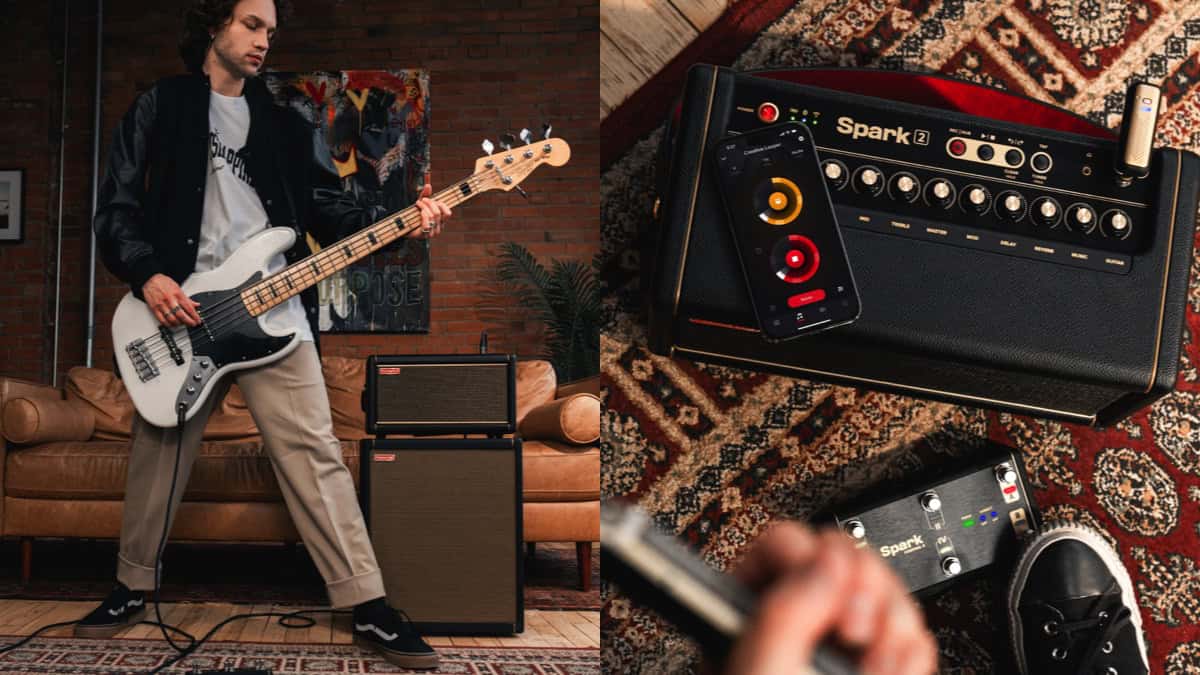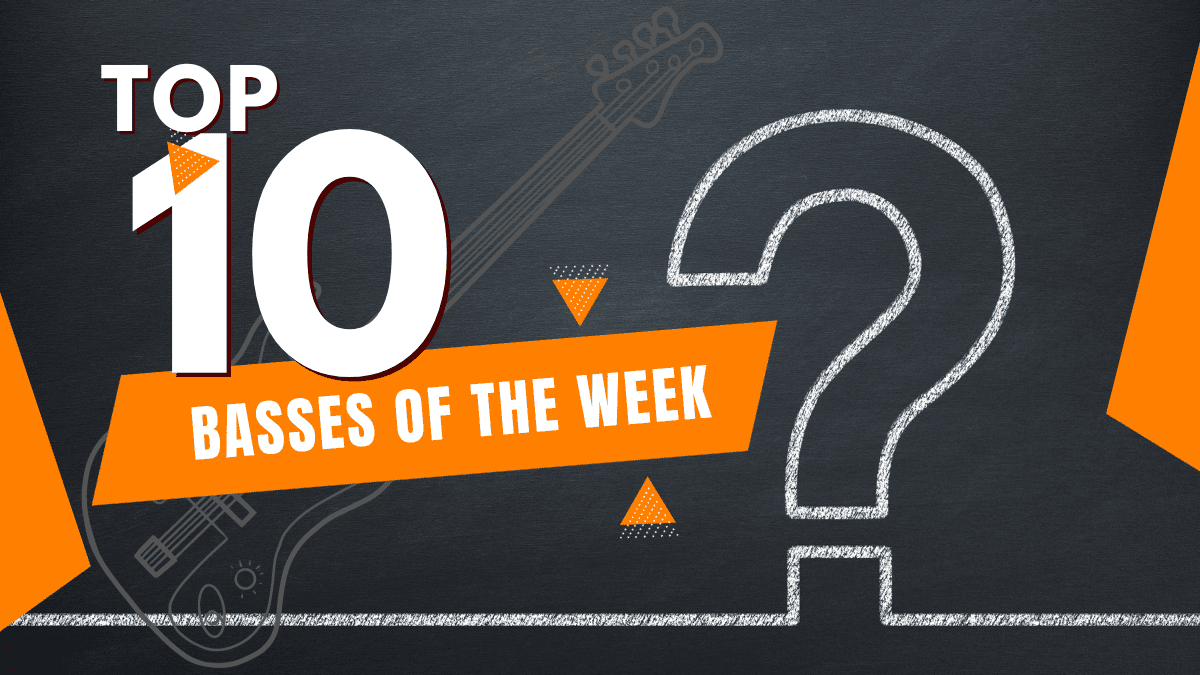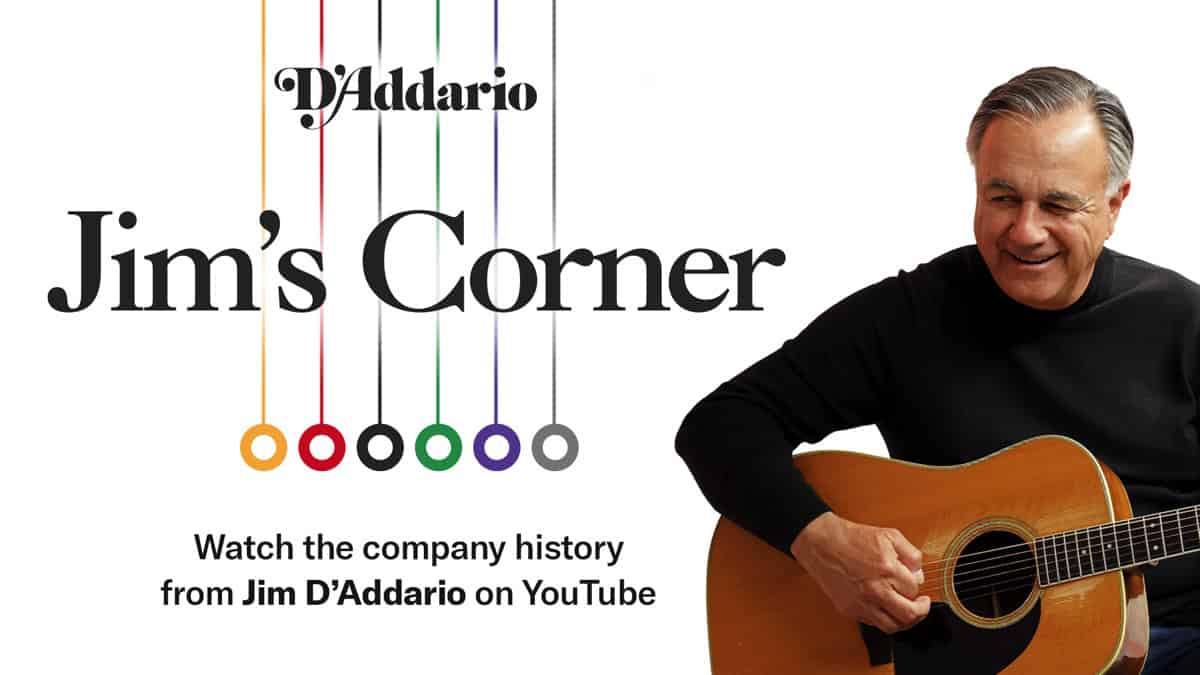Latest
Respect the Stage… Respect the Audience by Igor Saavedra


If I would have to choose one of the biggest mistakes that we the instrumentalist’s have the tendency to commit while we play, I would go for the topic of “playing for ourselves”.
I’m not a rock or a pop player myself. In fact quite the contrary. I’m not interested in showbiz at all. I’m that typical idealistic nerd musician that loves instrumental music, fusion and jazz, because we like it, and that’s the way the general audience perceive us. By “general audience” I mean the 90% of the people who turn on the radio and attend to concerts all over the world. We can state that these are not the people we are interested in reaching with our music, so that lives us with just the 10% of the spectrum, or maybe less. So the big question now it would be, are we doing what’s necessary to communicate effectively and be able to at least get the desired attention of this small, specific and “initiated” musical audience?
In my humble opinion the answer is, No!
What I’m saying here comes from a profound self analysis, and from numerous questions I’ve done with musicians and students through the years. In other words my opinion is not just my opinion, it is also what I’ve been hearing from people.
One of the few things I like from the musicians that choose to dedicate their lives to playing commercial music is the huge importance they always assign to the audience and the stage itself. That’s why that audience is usually so unconditional even when many times the musical outcome is quite deficient.
What is music about? Why do we play music? What is our main intention when we go on stage standing in front of an audience instead of having fun at home with our music? There are many questions, and the answers tend to be elusive at best.
In my opinion, the main word here is “Communication”. So we have to choose what we want to communicate, because like it or not, while we are on stage, we’ll be always communicating something even if we communicate that we don’t really care about communicating with the audience, at all. Understand?
We can also communicate that we just care about ourselves and that we love “self-gratification” with our instrument (there’s a better word that starts with an “M”)
We can communicate that we’re good, and expert musicians. We know a lot about music, and we’ve done all our homework in relation to harmony, scales, rhythm, and technique, etc.
We can communicate that we are extremely professional, and we have the best amplifying systems and the best instruments money can buy (or endorse).
We can communicate that we hate the system and that we go against it. We can help ourselves by wearing black leather jackets and pants and singing or screaming with rough voices.
We can communicate that we look well dressed, hot and handsome, and at the same time we are communicating we are available for all the chicks.
Everything I’ve mentioned above is being done right now over thousands of stages and in front of millions of people every day and every night all over the world.
Please note that I mentioned we’re talking about different types of behaviors, some adopted by musicians who play more commercial music like Hip Hop, Rock, or Pop, and other behaviors usually adopted by musicians who play fusion, jazz, and instrumental music in general.
So what’s my point?
First of all, on stage, Be Yourself!! But this common phrase is not as simple as it looks. Let’s say I’m an angry person, and I aspire to “be myself on stage”. Needles to say, this is exactly what I’ll be communicating and “sharing” with the audience. So before we look at the phrase “be yourself” or “express yourself”, which these days is even more “En Vogue” than the other, I think it’s a moral duty to precede that phrase with the following sentence: “Improve yourself as a person, be honest, be a better human being, be generous, be kind, express love through your actions, and after that, PLEASE “Be yourself wherever you are and especially on stage”.
Always remember people pay to see YOU. If you don’t care about them, if you give them something different than what was said they were going to receive, you’ll be literally swindling them. Please don’t confuse what I’m saying here with the fact that the audience can like or dislike your concert.., that’s a completely different matter related with more subjective aspects. But there are certain aspects that are really objective (if objectivism exists), like don’t turn your back to the audience, speak clear and loud enough so they can hear you, don’t be drunk or stoned on stage so you’re barely able to play properly, at least rehearse a little bit and don’t think that because you are a jazz player you are so good or so cool that you and your group can make mistakes and “It’ll always sound cool”, etc.
When you play music on a stage, you don’t need to think about the music, in fact, don’t think, just FEEL and look inside yourself for the best and the most positive aspects of your feelings and pass them on to the audience naturally and unfiltered through your playing. If you are communicating honest and luminous feelings through your music, that’s exactly what you’ll get back from the audience, AMPLIFIED!!
In a concert situation, the audience is the best amplification system ever created!
The Virtuous Cycle begins (or not), and you’ll be responsible for that!
Respect the Stage…Respect the Audience!!
Gear News
Gear News: Positive Grid Launches Spark 2

Positive Grid launches Spark 2, the next evolution of their cutting-edge smart guitar practice amplifiers and Bluetooth® speakers.
Engineered for acoustic, electric guitar, and bass, Spark 2 delivers an immersive practice and playing experience. Enjoy detailed sound and an all-new upgraded speaker design powered by Positive Grid’s exclusive Sonic IQ Computational Audio technology. With an onboard creative looper, optional battery power, and intuitive AI features for tone exploration and practice, Spark 2 is the gateway to a musical experience that goes beyond expectations.
Proprietary Audio and Advanced Technology
Spark 2 represents a leap forward in amplifier design. It integrates a new DSP amp modeling engine with double the processing power, and at 50 Watts, it packs 25% more volume than the original. Positive Grid’s proprietary Sonic IQ Computational Audio delivers incredibly detailed and dynamic sound. New HD amp models, enhanced by multi-band dynamic range compression and virtual bass augmentation, redefine the sonic landscape.
Equipped with two premium FRFR speakers and reflex ports, Spark 2 offers wide stereo imaging and broader frequency response, ensuring refined bass and clear, immersive sound.
Built-In Creative Looper
Spark 2’s built-in Groove Looper features hundreds of hyper-realistic drum tracks. From basic loops to multi-layered soundscapes or the ultimate jam session, this intuitive tool inspires endless creativity. Onboard amp controls provide quick, on-the-go looping functionality.
AI-Powered Tone and Smart Jam
Spark AI revolutionizes tone exploration. Describe any desired tone in the Spark app – from practical to outlandish – and Spark AI will suggest tones to audition or download. The more it’s used, the smarter it gets, delivering the perfect sound.
Additional smart features make it easy to practice, learn new songs and improve playing skills. Smart Jam listens to the user’s playing style and generates accompanying bass and drum parts, while Auto Chords analyzes any song streamed and displays the guitar chords in real time, to make learning and practicing new songs easier than ever.
Enhanced Hardware Design and Portability
Spark 2 allows for storing up to eight customizable presets directly on the amp for quick access to favorite sounds. Perfect the tone with large, visible onboard controls for looper, EQ, gain, reverb, and more.
Designed for convenience, an optional rechargeable battery provides up to 12 hours of playtime for on-the-go sessions. The new double-thick strap and durable build ensure easy and secure transport. Spark 2 is also Bluetooth® ready, allowing for music streaming and jamming along with favorite tracks anytime, anywhere.
Multiple Outputs and Advanced Features
Spark 2 offers versatile connectivity with a headphone out for private practice, stereo line outs for external audio sources, and a USB-C port which enables it to function as an audio interface. WiFi-enabled, Spark 2 allows convenient over-the-air firmware updates, keeping the amp up to date with the latest features and improvements.
“I’ve used a ton of practice amps while touring the world for over 38 years and it was always just a technical, bland exercise,” says guitar virtuoso, singer-songwriter and producer Nuno Bettencourt. “Spark 2 is like taking Madison Square Garden wherever you go – epic and versatile.”
Color Options
Available in Pearl or Black finish with a dark weave grille and premium finish.
Special Event, Upgrade Pricing & Availability
Join the special live premiere event featuring Nuno Bettencourt and surprise guests on August 1, 2024, at 8:00 am PT/11:00 am ET. Visit positivegrid.com/pages/livestream for more details and to sign up for a reminder.
Regularly USD $299, Spark 2 will be available at special early bird pricing during the pre-order period. Registered Spark 40 owners can also receive exclusive upgrade pricing.
For more information and to sign up for pre-order alerts, visit positivegrid.com/products/spark-2.
Gear Reviews
Gear Review: Exploring the Joyo Gloam – Sub Octave Fuzz Pedal for Bass

A review of the Joyo Gloam – Sub Octave Fuzz Pedal for Bass
Disclaimer: This pedal was kindly provided by Joyo for the purpose of this review. However, this does not influence our opinions or the content of our reviews. We strive to provide honest, unbiased, and accurate assessments to ensure that our readers receive truthful and helpful information.
Introduction: The Joyo Gloam is a sub-octave fuzz pedal specifically designed for bass players, combining modern sub-octave effects with rich fuzz tones. With two independently controlled circuits, the Gloam aims to provide a versatile range of sounds, from deep, aggressive fuzz to Moog-like synth effects. This review will explore the Gloam’s specifications, controls, and overall performance, highlighting both its strengths and areas for improvement.
Specifications:
- Dimensions: 130 * 110 * 50 mm
- Weight: 403g
- Working Voltage: DC 9V
- Controls: The Joyo Gloam features a comprehensive control set designed to provide bassists with a wide range of tonal options:
- Dry Tone: Adjusts the tone of the clean signal.
- Dry Volume: Controls the volume of the clean signal.
- Sub Octave Volume: Adjusts the volume of the sub octave signal.
- Gain: Controls the amount of gain in the fuzz circuit.
- Fuzz: Adjusts the intensity of the fuzz effect.
- Bass: Controls the bass frequencies in the fuzz circuit.
- Treble: Adjusts the treble frequencies in the fuzz circuit.
- Fuzz Mode Switch: Switches between two different fuzz modes.
- Dry Tone Frequency Switch: Selects between two different frequency points for the dry tone.
Performance: The Joyo Gloam excels in its dual-circuit design, offering both a sub octave and a fuzz channel that can be controlled individually. However, it’s important to note that the octaver cannot be used without the fuzz circuit activated; the only way to solo the octaver is by turning down the fuzz while both channels are engaged.
Fuzz Circuit: The fuzz circuit includes standard controls such as gain, volume, bass, and treble, along with a fuzz mode switch that toggles between two distinct fuzz modes. While one of the fuzz modes is highly usable and delivers a rich, aggressive tone, the other mode falls short and is less practical for most applications.
Octaver Circuit: The octaver circuit features controls for sub octave volume, clean volume, and clean tone, along with a dry tone frequency switch that provides two different frequency options. This allows for significant tonal versatility, enabling bassists to fine-tune their sound to match their preferences. Despite its limitation of being tied to the fuzz circuit, the octaver produces a deep, balanced sound that stands out.
Combined Effect: When used together, the fuzz and octaver circuits create a wide range of sounds, from classic, aggressive fuzz to synth-like tones reminiscent of a Moog synthesizer. This combination makes the Gloam a powerful tool for bassists seeking to experiment with their sound and achieve unique, textured tones.
Pros:
- Versatile Controls: Extensive control options for both fuzz and octaver circuits.
- Rich Tones: Delivers deep, aggressive fuzz and balanced octaver sounds.
- Sturdy Construction: Durable build quality ensures reliability.
- Wide Range of Sounds: Capable of producing everything from classic fuzz to synth-like effects.
Cons:
- Unusable Fuzz Mode: One of the fuzz modes is less practical.
- Dependent Octaver: Octaver cannot be used independently of the fuzz circuit.
Conclusion: In conclusion, the Joyo Gloam sub-octave fuzz pedal offers a versatile and powerful option for bassists looking to expand their tonal palette. Despite some flaws, the Gloam delivers impressive sounds and flexibility. Its combination of rich fuzz and deep octaver tones, coupled with a sturdy construction, makes it a valuable addition to any bassist’s pedalboard. For those seeking a modern bass distortion with the added depth of sub-octave effects, the Joyo Gloam is a compelling choice for a very compelling price.
Visit online at joyoaudio.com/product/281.html
Latest
July 22 Edition – This Week’s Top 10 Basses on Instagram

Check out our top 10 favorite basses on Instagram this week…
Click to follow Bass Musician on Instagram @bassmusicianmag
FEATURED @jermsbass @ramabass.ok @adamovicbasses @mgbassguitars @marleaux_bassguitars @overwaterbasses @mauriziouberbasses @elrickbasses @zemaitisguitars @sandbergguitars
Gear News
Behind the Strings: D’Addario’s Story Comes to Life in “Jim’s Corner” YouTube Series

Behind the Strings – Jim’s Corner…
D’Addario & Co. proudly announces the launch of “Jim’s Corner,” a captivating new YouTube series telling the 400-year-old story of the D’Addario family creating the world’s largest music accessories company. This series features Jim D’Addario, Founder and Director of Innovation at D’Addario and Co., sharing his family’s remarkable journey from 17th century Italy to a 21st century global enterprise.
In the first four episodes now available, Jim D’Addario takes viewers back to the beginning, making strings from animal guts and knotting ukulele wire as a family around the television. Countless generations carried the passion forward until the 1970s when the company made it official and never looked back. Jim recounts the creation of strings that inspired legendary riffs, including one by The Who, the launch of Darco strings, the merger with Martin Guitars and the company’s humble beginnings with his wife, Janet and brother, John. Jim D’Addario’s firsthand accounts provide an intimate and personal perspective on the milestones and challenges that shaped D’Addario into the revered brand it is today.
Episode Highlights:
- Episode 1: The Early Days in Italy and the Move to America
- Episode 2: Inspiring Iconic Riffs and Legendary Partnerships
- Episode 3: Launching Darco Strings and Merging with Martin Guitars
- Episode 4: Building the D’Addario and Co. Legacy
Watch & Subscribe Now:
Join us in celebrating this incredible legacy by watching the first four episodes of “Jim’s Corner” on YouTube. New episodes will drop every month so please subscribe to our channel to ensure you don’t miss any future episodes and exclusive content from D’Addario & Co.: www.youtube.com/@daddarioandco
Gear News
Gear News: Aguilar Amplification Unveils Limited Edition NYC Gold Skyline Tone Hammer Preamp

Aguilar Amplification announces the release of the Limited Edition NYC Gold Skyline Tone Hammer Preamp pedal. Hand serialized 1-100, this exclusive edition celebrates Aguilar’s deep roots in New York City with a tribute to its iconic landmarks and vibrant spirit.
Born in the heart of NYC and raised on the road, the Tone Hammer Preamp DI has been an indispensable tool for bassists seeking inspiring tone and versatility. The new Limited Edition Gold NYC builds on this legacy with striking custom graphics encapsulating the essence of New York City. Featuring iconic landmarks from the Statue of Liberty to the Empire State Building, this pedal is not just a tool, but a piece of art embodying the soul of the city. Each unit features a sharp platinum silkscreen over a stunning matte gold sparkle finish, that is as visually captivating as it is sonically powerful.
The Tone Hammer is an essential preamp/direct box for every bassist’s toolbox. The Tone Hammer features fully sweepable midrange frequencies in addition to bass and treble controls. With the Tone Hammer’s pristine D.I. players are set for either studio or stage. To give this tone shaping unit the ultimate flexibility we introduce our proprietary Adaptive Gain Shaping circuitry (AGS). AGS allows the player to kick in an additional gain structure and EQ with the “stomp” of a button. You can go from modern slap sounds to vintage or overdriven. 18-volt operation gives the Tone Hammer plenty of headroom to reproduce the most dynamic playing styles. Separate gain and master controls allow players to dial in just the right gain structure for any instrument.
Aguilar Amplification’s Jordan Cortese adds, “With only 100 hand-numbered units available, this third iteration of our NYC edition Tone Hammer is a collector’s dream. “It’s a homage to our city’s monumental influence on music and culture and celebrates the craftsmanship and the story of Aguilar”.
Street price: $299.99 For more information, please visit www.aguilaramp.com















